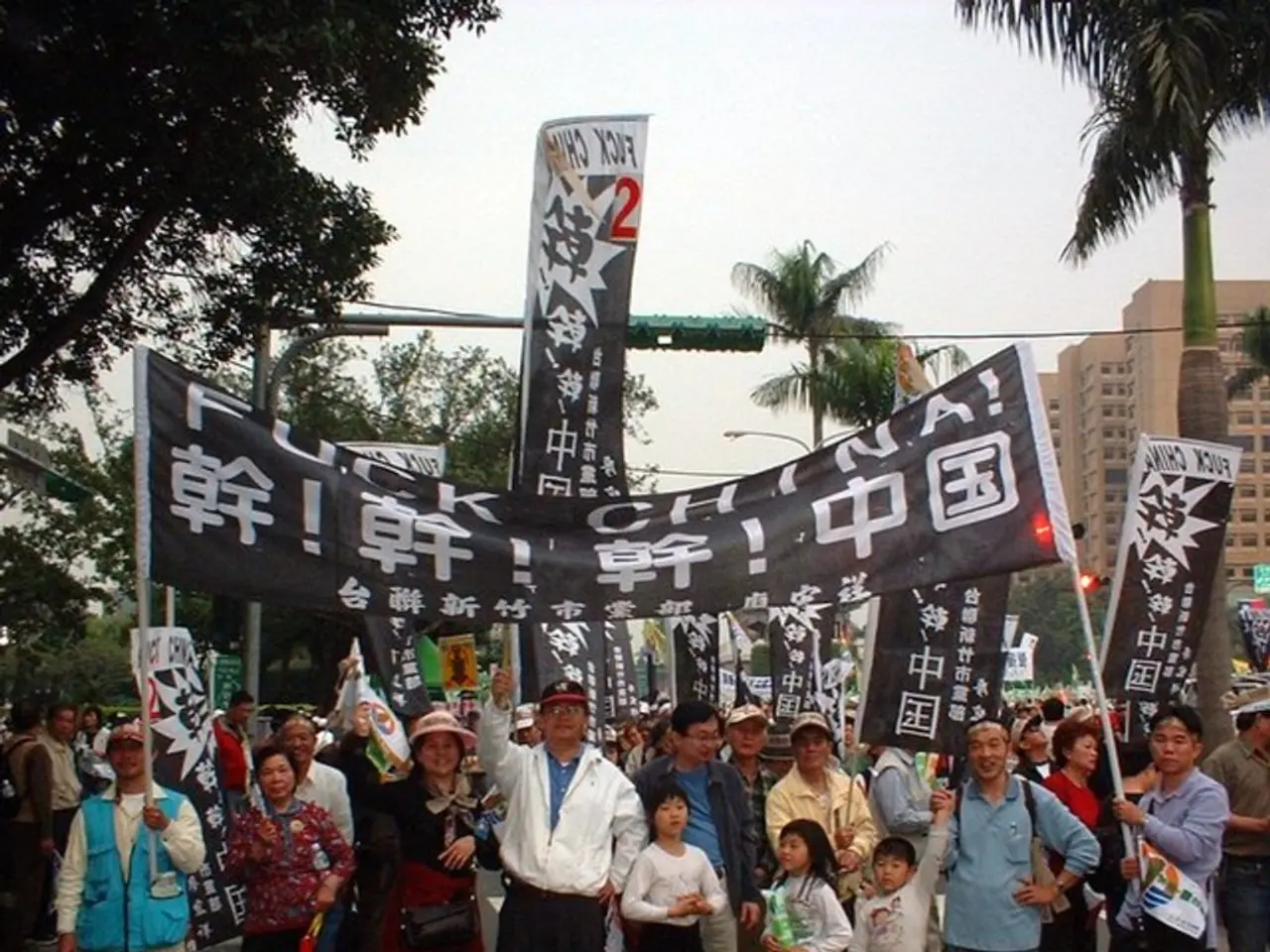Taliban prohibits Afghan women from participating in anniversary festivities marking their takeover in Kabul
In the heart of Afghanistan, the fourth anniversary of the Taliban's return to power was marked by a stark divide. While thousands of men gathered in Kabul for the celebrations, women were barred from participating.
The Taliban's interpretation of Islamic law in Afghanistan imposes severe restrictions on women, effectively excluding them from public life. Key current restrictions include a ban on public speaking, the requirement for a male guardian for women to move or access services, a strict dress code, exclusion from education and employment, and removal from roles in the justice sector.
These combined restrictions create a cycle that confines women to private spaces, increases their vulnerability, and severely curtails their autonomy and presence in public life. The United Nations terms the situation close to a "gender apartheid," where women are systemically excluded from social, educational, economic, and political participation.
The celebrations, which were more muted than last year's, saw Defense Ministry helicopters scattering flowers to the crowds below. However, the focus was on identifying means to "further consolidate and fortify" the Islamic government, according to government spokesman, Hamdullah Fitrat.
Meanwhile, Afghan women held indoor protests in Islamabad, Pakistan, and northeast Takhar province, voicing their discontent against Taliban rule. Signs at the protests read, "Forgiving the Taliban is an act of enmity against humanity" and "August 15th is a dark day."
Rights groups, foreign governments, and the U.N. have condemned the Taliban for their treatment of women and girls. The Taliban leader, Akhundzada, issued a statement warning of divine punishment for ingratitude towards Islamic rule in Afghanistan. He also emphasized the importance of religious knowledge for the stability of the Taliban government and ordered the Kabul Municipality to build more mosques.
Akhundzada expressed gratitude for the establishment of Islamic law should be expressed during the commemoration of Victory Day (Aug. 15). He also warned of severe punishment from Allah Almighty for ingratitude towards blessings.
The country is currently experiencing a humanitarian crisis made worse by climate change, millions of Afghans expelled from Iran and Pakistan, and a sharp drop in donor funding. Despite these challenges, the Taliban's focus remains on consolidating their power and imposing their interpretation of Islamic law, which continues to limit the rights and freedoms of Afghan women and girls.
- The Guardian
- Amnesty International
- BBC News
- Reuters
- Human Rights Watch
The article is written in Markdown format, with each paragraph separated by two line breaks.
- The Guardian delves into the striking divide marked during Afghanistan's fourth anniversary of Taliban rule, highlighting the exclusion of women from public life under their interpretation of Islamic law.
- Amnesty International struggles to find the words to condemn the Taliban's mistreatment of Afghan women, calling for an immediate end to the systemic exclusion and violation of their rights.
- BBC News reports on the indoor protests held by Afghan women in Pakistan and Takhar province, as they voice their discontent against Taliban rule and call for inclusion in public life.
- Reuters chronicles the United Nations' terminology of the situation in Afghanistan as close to a "gender apartheid," emphasizing the need for immediate action to safeguard women's rights and freedoms.
- Human Rights Watch scrutinizes Taliban leader Akhundzada's statements, expressing concern over his focus on consolidating power and imposing restrictions on women's rights and freedoms.
- CNN investigates the current humanitarian crisis in Afghanistan, exacerbated by climate change, refugee expulsions, and declining donor funding, and its impact on women's health-and-wellness, particularly in the field of women's health.
- Politico examines the Taliban's emphasis on religious knowledge and the construction of mosques, raising questions about their intentions and the impact on the government's general-news landscape, including crime-and-justice and war-and-conflicts.




